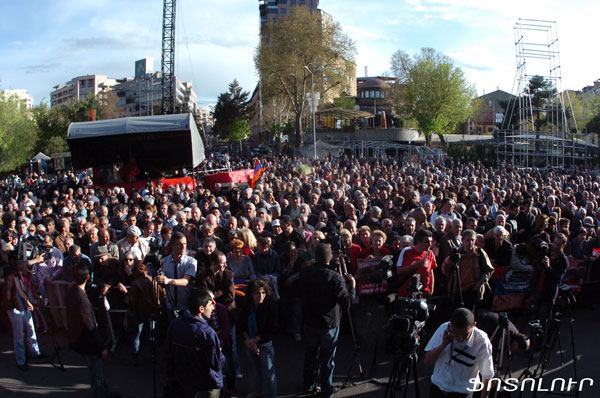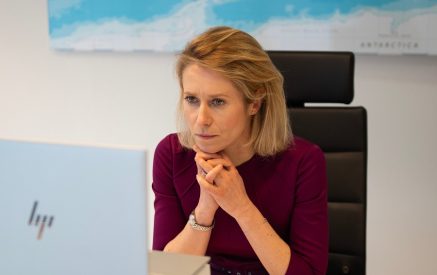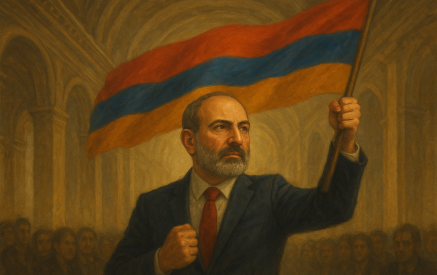The task of the opposition in the entire history of independent Armenia has been to gather the so-called “critical mass.” Judging from the fact that there has been no change of power in 20 years in the way the opposition would like it to be – i.e. there hasn’t been a revolution like in Georgia, Ukraine, and Arab countries – the “critical mass” has never been gathered in our country. There have never been enough people in the streets to make the willingness of the government to use force, which was, is, and will be there, meaningless and inefficient. And a question arises whether only quantity is the issue here or quality too.
But first of all, about quantity. In 1988, the Karabakh Committee would state that one million people had gathered in Freedom Square. In the 1990s, the Armenian Revolutionary Federation (ARF) and the National Democratic Union (NDU), at the beginning of the 2000s, the People’s Party of Armenia (PPA) and the Republic Party, and in 2008, Ter-Petrossian’s supporters would talk about hundreds of thousands. Those numbers are false. According to well-informed – I assure you really well-informed and professional – sources, 36 thousand people at most can gather in Theater Square itself, and if we add to that the territory where there are cafes now, as well as the territory around Swan Lake, where the protesters always
stand in smaller groups, that number can be doubled at best. Roughly the same thing can be said about people gathered from the stairs of Matenadaran to “Ponchikanots” (doughnut shop). Therefore, the opposition gathers several tens of thousands of people at its best rallies.
It is quite a large number. There weren’t more people in Tahrir, Maidan or on Rustaveli Street. Why then the mass there was critical, and in our country it wasn’t? They usually mention the tactical mistakes of the opposition leaders on the one hand and the government’s determination to use force on the other. Certainly, they are contributing factors, but I don’t think that their “summands” differ very much in the countries of “successful” and “unsuccessful” revolutions. It seems to me the difference is in the proportion of active, “passionate” people in the overall mass of people. People who are ready to really fight “to the finish.”
Read also
Let us see who are in that “mass” not generally, but at the rallies of the opposition to be held under these circumstances in Armenia. People who have been brought from the regions and have to ensure “massiveness”; most of them are activists of the opposition parties’ offices, the relatives and friends of the local leaders as a rule. It is difficult – also financially – to keep them in Yerevan for 2-3 days. Besides, people have their own concerns; land needs to be looked after every day. Another large group is the lumpen mass in Yerevan – poor, mostly old people – who readily cursed and will curse any government and any president. It would be shortsighted to rely on them, as far as revolution is concerned, too. Low- and middle-ranking officials also account for some part; they cherish secret hopes that they will become higher-ranking officials and will take larger bribes after the change of power. Former officials are close to this category; they hope that after the change of power, they will continue the interrupted enjoyments. This group should be rejected too.
The youth, first of all students, are the strike force of the revolution; firstly, they honestly believe in the ideas proclaimed by the opposition, secondly they don’t fear to lose property or a job. Does that group suffice to make the mass “critical”? I think no. The youth should join conscious, middle-aged people who have a job or property, but who are convinced that the country has taken a wrong path and are ready to correct that path. Those people usually join the “mass” during elections and particularly after them when they feel that their votes have been disregarded.
However, in order to bring those people to the square, one should participate in elections. And those who have “managed” that mass for 5 years don’t participate in this election. I am talking about the Armenian National Congress (ANC), which was by no means prevented from announcing it candidate in the election or endorsing one of the existing candidates. And in the current situation, the ANC should either wait for the right moment or delegate the function of “bringing to the square” to another force.
Aram ABRAHAMYAN




























































